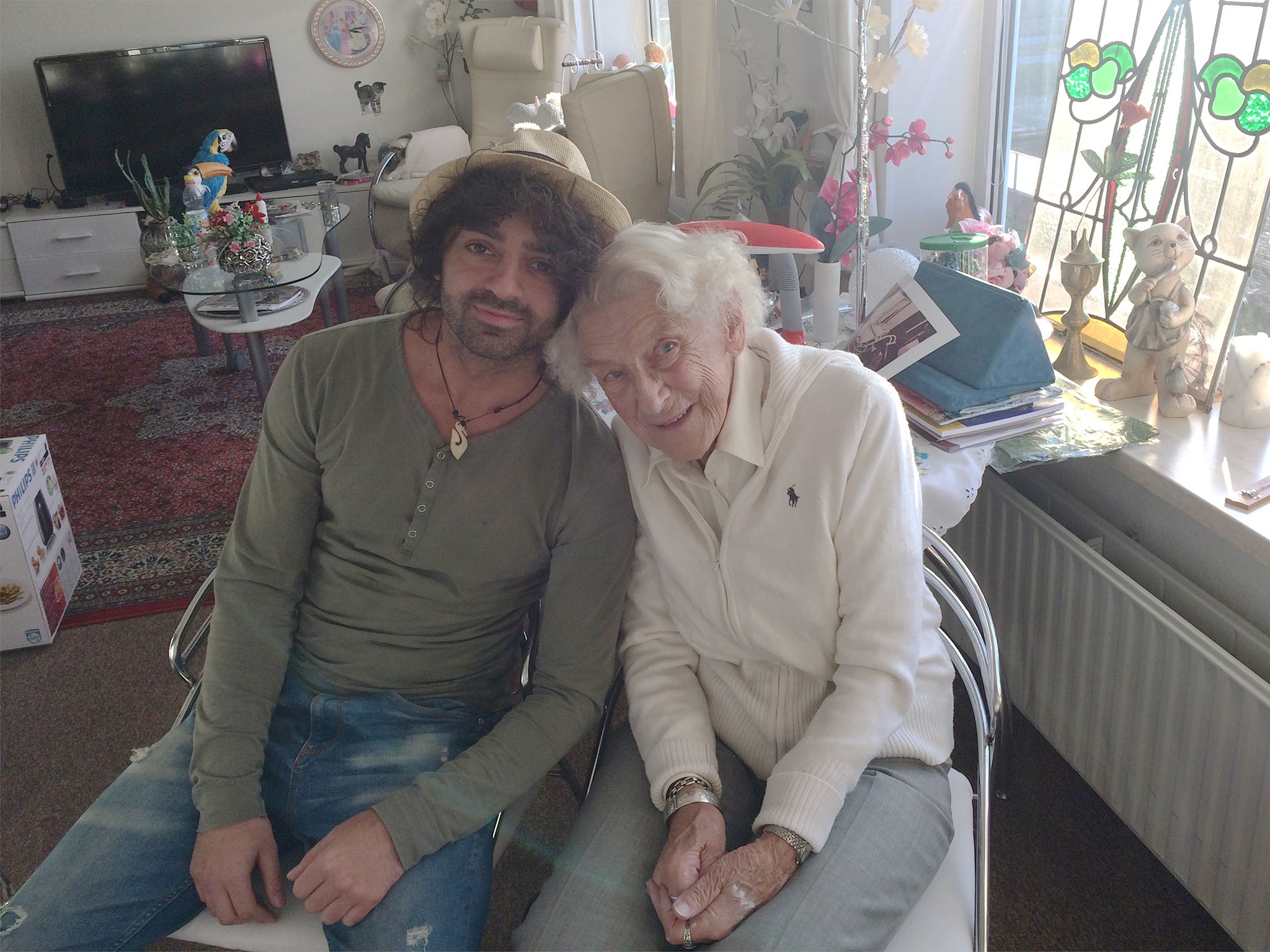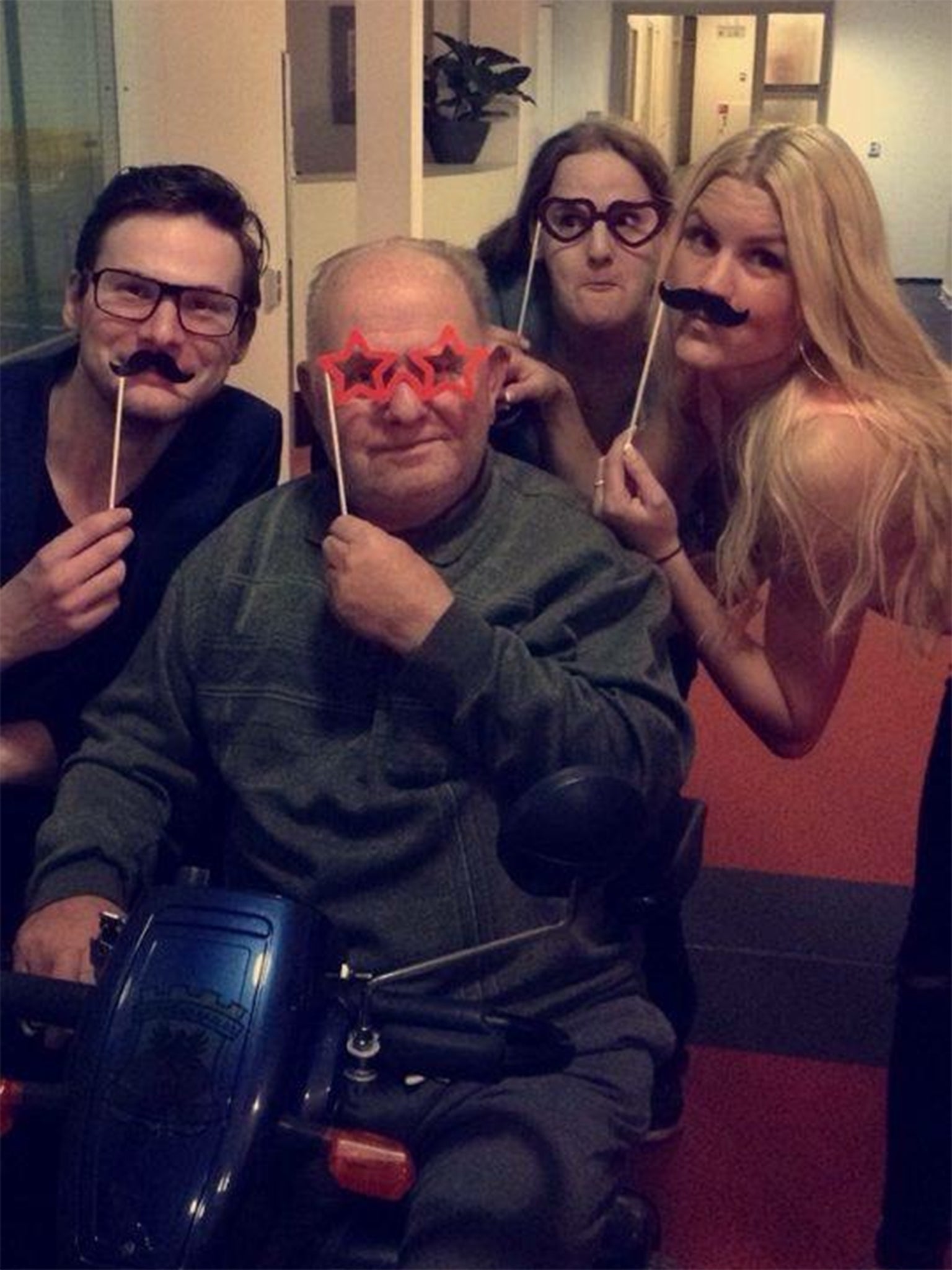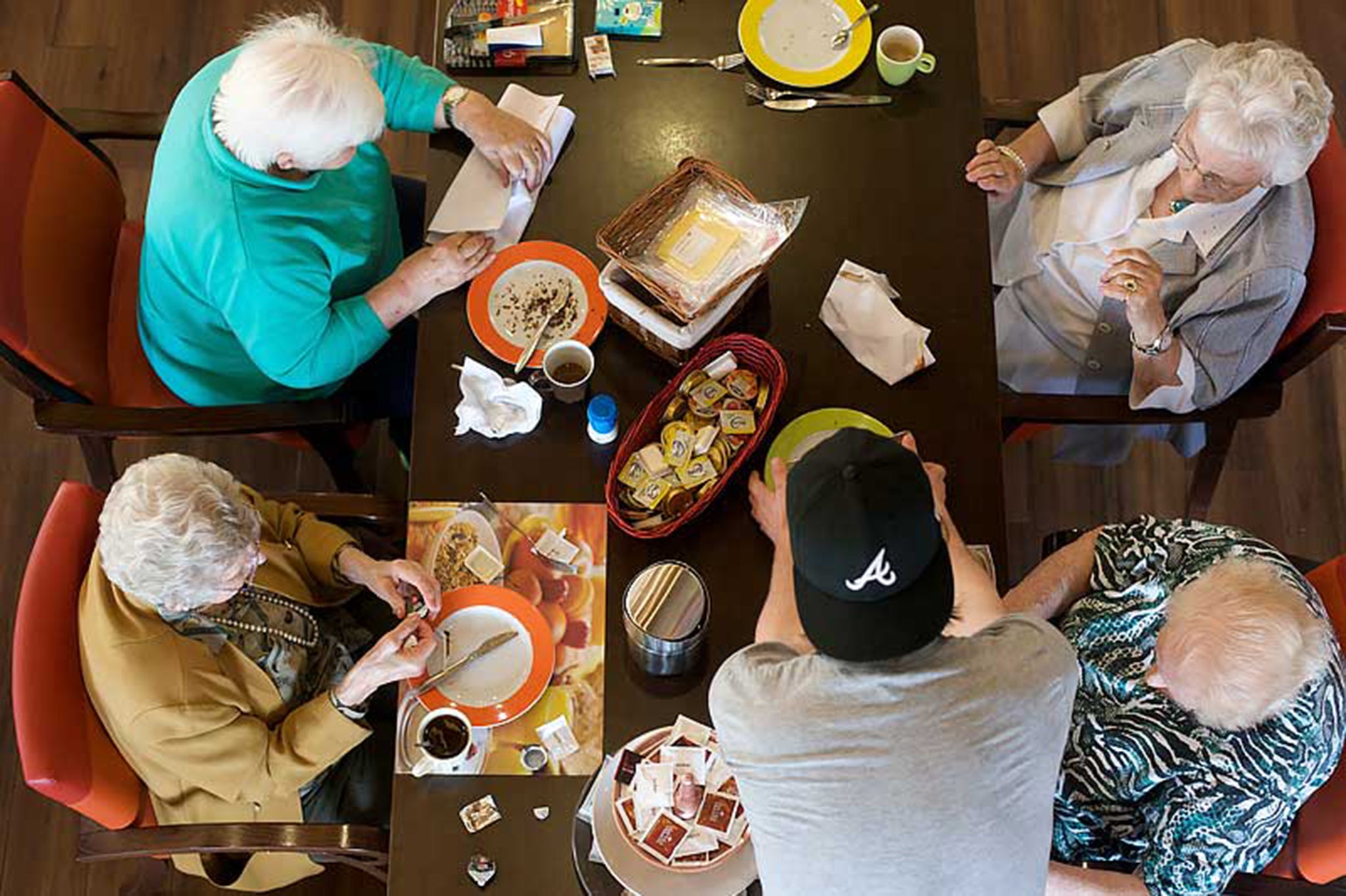Could our intergenerational conflict be solved by students living with the elderly?
Society is more divided by age today than any other time in history, but is this fuelled by Brexit or the widening generation gulf? A Dutch experiment integrating university students in an elderly care home could be the solution, says David Barnett


As I wrote this, two events of wildly differing importance yet which share a connection were occurring.
The first was that Brexit ministers were beginning to fall like dominoes, beginning with Dominic Raab and continuing on an almost hourly basis throughout the morning. The second – which, admittedly, was on a much more personal level – is that my latest novel has been officially published.
One necessarily swamped the other, of course, in terms of relevance to the population at large. But the two things are inextricably linked, in that my latest book – The Growing Pains of Jennifer Ebert – is essentially about Brexit, and more specifically the generational divide the EU referendum brought into sharp relief.
According to the statistics and market research organisation Statista, 66 per cent of women and 62 per cent of men aged over 65 voted to leave, while in the 18-24 age group, 61 per cent of males and a whopping 80 per cent of women voted to remain in the EU.
The novel isn’t about Brexit, of course; that would be boring. But it does tease out this inter-generational conflict that Brexit has thrown up, and it does so through the lens of a real-life attempt to solve this conundrum which is running in the Netherlands.
Towards the end of 2016 I became aware of a project running in Holland where a nursing home had invited university students to move in with the elderly residents. It was one of those stories that chimed with me, and which I filed away as possible fodder for a new book.
I had just finished my novel Calling Major Tom, which also sprung from a real news story – that of the British astronaut Tim Peake calling a wrong number from the International Space Station at Christmas 2015 and ending up talking to a Derbyshire grandmother instead of his own family.
On the basis that truth is often stranger than fiction, I decided to once again use a news nugget as the basis for a book, employing the basic story of university students living with rest home residents as the fulcrum for the novel which eventually became, when published this week, The Growing Pains of Jennifer Ebert.
Just like Calling Major Tom wasn’t at all about the Tim Peake story, Growing Pains isn’t really about the real-life project in the Netherlands. Those things are merely the catalysts for the stories I wanted to tell.

The nursing home news story was one of those tales that gained a little traction in December two years ago, when hard news is often light and uplifting features are the order of the day, and then it dropped off the agenda just as quickly.
The care home in question is the Humanitas Deventer home in the Overijssel region of the Netherlands. It began its project in 2012, inviting six students to live in accommodation on the premises.
Setting out her ethos in a piece she wrote for Care Talk magazine, Humanitas CEO Gea Sijpkes explained, “As in most countries, students in Holland have to borrow money for studying and living. At Humanitas Deventer we offer rent-free living in return for just 30 hours of meaningful contact time spent with the elderly residents each month. Our goal is to make Humanitas Deventer the warmest and nicest place to live for the elderly.”
According to the Humanitas website, “One student hosts the evening meal in our restaurant every day of the week, but this is just an example of the great things they do for our residents. Their vibrant lives really colour the daily living of the elderly. Apart from neighbours, the students and residents became very good friends, with a deep and meaningful relationship that gives both sides a great deal of positivity and support.”
And in case you were wondering whether students would find the usual university of life lacking, with lights out at ten, then fear not: “They decide at what time they come home at night. But there is one important rule: the residents may not be disturbed.”
In my fictionalised version, the retirement home is on the Lancashire coast, a run-down place called Sunset Promenade which decides to copy the Dutch model in a bid to access some much needed funding from a variety of social grants. Students from the nearby (fictional) University of North Lancashire in Morecambe are invited in, and four of them take up the offer, among them the titular Jennifer Ebert, who has relocated there after a disastrous first year at Loughborough.
The real Dutch experiment seems to have been a successful one. Dramatic tension dictates the novel had to be less cosy. The young and old clash, the retirement home comes under threat as European funding is pulled due to Brexit. Can the students and their elderly neighbours put aside what seem their insurmountable differences to try to save their home?
As the novel was published this week, I got to wondering just how successful the Dutch project had actually been. Are young and old able to coexist happily? I got in touch with Gea Sijpkes to find out, and to ask why she’d come up with the idea in the first place.
“I was thinking about possibilities to inject life in our nursing home without running up costs,” she tells me. “So we decided to combine the interest of the students and the elderly and both groups benefit.”
The six students who are living in Humanitas at any one time each take a room on one of the six floors of the building, living directly in the middle of the elderly residents. How long did they last, I wonder?
Gea says: “The first student from 2012 moved out last year. We have no rules for the length of the stay but there always seems to be a natural moment in which they move on, go to the next step – buying a house of falling in love and live together or something that makes them move on.”
In the piece she wrote for Care Talk, Gea explains how the project makes sound business sense for the company: “Humanitas Deventer is an old organisation in an old building, and the ideas about housing and apartment dimensions have changed over the years. In an old building like Humanitas there are a some apartments that are not ideal for elderly housing. For example, some are very small or they are at the end of a very long corridor which requires a lot of walking. These are the apartments that are very good for student living and therefore, there is no actual cost in accommodating the students.

“The benefits for the organisation are innumerable. There is the positive influence on the atmosphere in the house; there is a lot of laughter; and it’s brought us closer to our vision of becoming a warm and loving house for the elderly.”
The latter point being the key thing, and perhaps the most surprising one for us in the UK, where baby boomers and millennials seem at constant loggerheads, one group dismissing the other as feckless, entitled snowflakes afraid of hard work, and in return the young blame the old for Brexit, an impossible housing market, and generally ruining the country.
Perhaps Brexit has soured and clouded our judgement in terms of how the young and old can actually get on. Gea tells me: “The students socialise with their elder neighbours, they develop excellent social skills, they become familiar to death as a part of life. They become beautiful adults.
“The elderly are proud of their students. Sometimes they see them as their grandchildren, sometimes as young friends. The elderly say that the students are bringing the outside world in with their stories and romances. And the young ones celebrate life with the elderly.”
In The Growing Pains of Jennifer Ebert, the two groups are at loggerheads until the main character – an aficionado of film noir, a theme which runs through the book – introduces a weekly movie night in the home. Mutual respect comes slowly and grudgingly, and in some cases not at all.
But at Humanitas, it seems to have been an easier ride. Gea says: “The elderly think the students to be very free. In their thoughts and behaviour. They discuss the themes of life, they wonder about each other’s ideas. Sometimes laugh about it.

“The students respect the elderly for their peace of mind and life experiences, their stories of a different world. I think very much thinking from elderly to students and back is based on prejudices, once they meet as individuals, the contact is sincere and respectful.”
Was I being over-dramatic in my vision of students and the elderly at each other’s throats in the novel? I don’t think so. A YouGov poll on behalf of the All Party Parliamentary Group on Social Integration, the results of which were released last December, stands up the generational conflict in the UK today.
Indeed, the parliamentary group’s chairman, Chuka Umunna, told the BBC when the report was released that age now seemed to be “the biggest determinant” of how people vote, adding: “That is simply not a healthy, cohesive society, if you have that level of intergenerational division politically.”
The poll revealed that one in four young Remain voters would quite happily see pensions cut if it meant Brexit could be avoided, and on the other side of the fence, the same proportion of older Leave voters would accept lower wages for younger people to secure Brexit. That in itself betrayed a quite astonishing lack of empathy and a high degree of selfishness on both sides. Umunna said this showed society was “more divided by age today than at any other time in modern history”.
However, is the generational conflict – fuelled by Brexit, of course – something of a self-fulfilling prophecy because the two “sides” know little or nothing about each other?
In the same BBC report about the YouGov poll, David Williams, chief executive of the Bristol-based charity the St Monica Trust, said there was “clear evidence” bringing the generations together had “massive benefits”.
He said: “When the generations mix, it’s OK to have different political views because people have different political views in everyday life. What’s important is that ability to develop a relationship with people that do have different views.”
There’s always been an element of not seeing eye to eye between older people and younger people, ever since teenagers stopped dressing like their parents and sought other ways of living – probably back to at least the late 1940s and the nascent rise of beatnik culture in the States. Dylan told the old folks to get out of the way in “The Times They Are a-Changin’”, the Sex Pistols goaded Bill Grundy into letting them swear like troopers on national TV, Acid House demonised kids and terrified parents.

But the current polarisation between the generations certainly seems worse since the Brexit vote. Older people are living longer, the NHS is being ground into the dust, there isn’t the money to look after them or care for the ailments that come with longevity. Young people can’t afford rents, can’t get jobs, are unlikely to ever get the free education, widespread healthcare and affordable housing the older generations have enjoyed. It’s an almost impossible situation. Can it ever be fixed? Gea Sijpkes thinks it can… especially if other countries adopt the Humanitas model of mixed generational living.
“I believe in the power of people, they should not be separated in homogeneous groups,” she says. “Diversity adds value. So I do hope many countries will adapt to programmes that humanise care; making connections that create communities.”
‘The Growing Pains of Jennifer Ebert’, by David Barnett, is out now, published by Trapeze/Orion. For more information on the Humanitas project visit humanitasdeventer.nl
Join our commenting forum
Join thought-provoking conversations, follow other Independent readers and see their replies
Comments
Bookmark popover
Removed from bookmarks